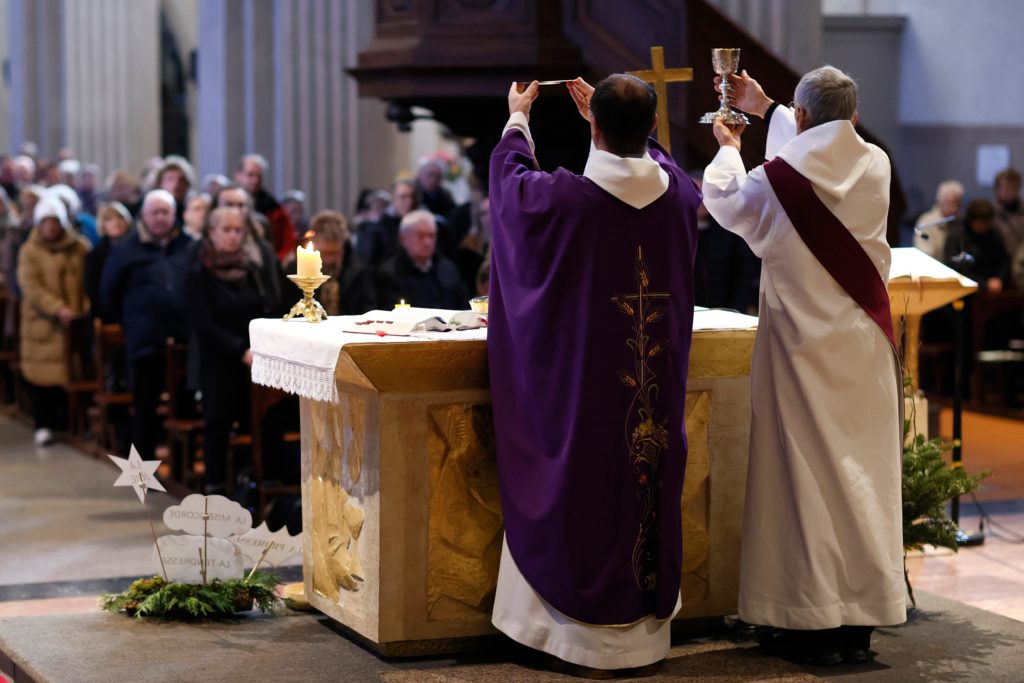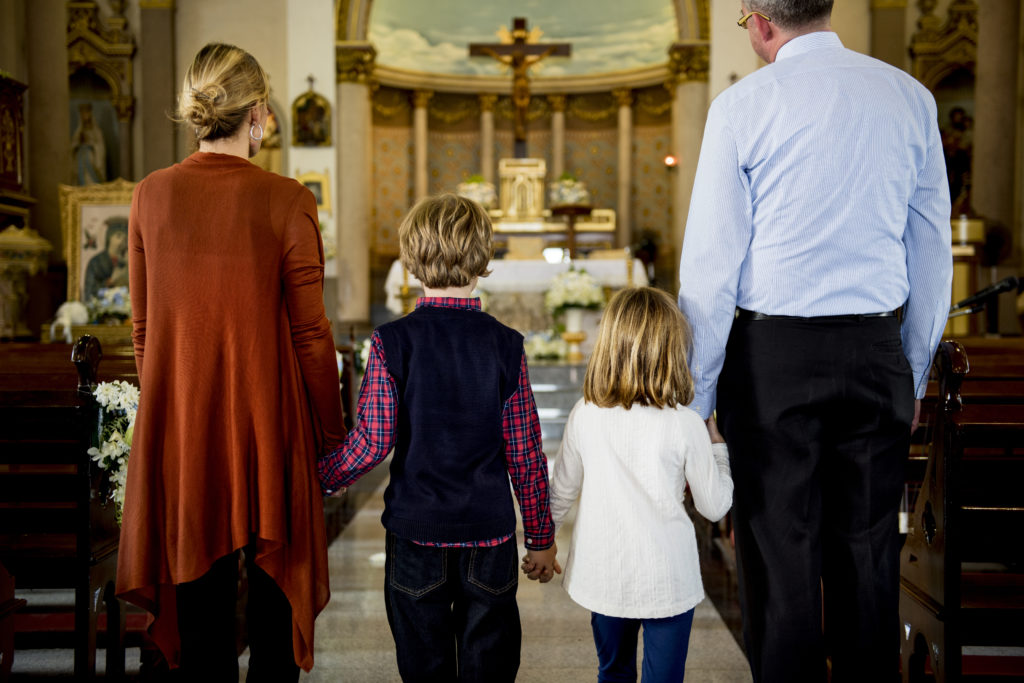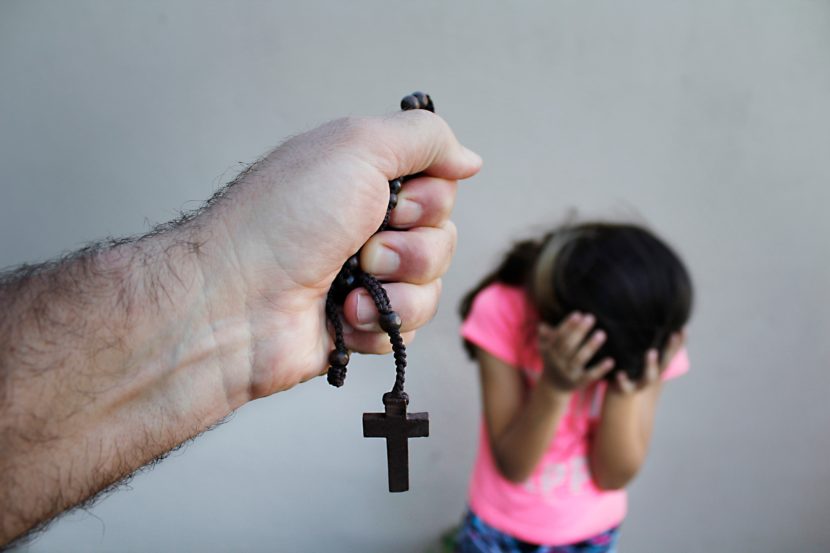Between 1950 and 2020, at least 216,000 children in France were sexually abused by priests and members of religious orders. These crimes show how abuse was enabled by silence, cover-ups, and a culture that protected the institution rather than children. In response, France has begun reforms and created independent bodies such as the CRR and INIRR, but survivors and experts insist that recognition must be matched with structural change to ensure such abuse can never happen again.
The CIASE Report: Findings on child abuse in the Catholic Church of France
For more than seventy years, children in France have been subjected to sexual violence within the Catholic Church on a scale that defies comprehension. According to the Independent Commission on Sexual Abuse in the Church (CIASE), at least 216,000 children were abused by priests and members of religious orders (CIASE, 2021).
The CIASE report, published in 2021 after two and a half years of investigation, drew on more than 2,500 testimonies and thousands of Church and judicial archives. The findings were described as “staggering” in scope, making clear that the French Catholic Church failed in its fundamental duty to protect children (CIASE, 2021)
Survivors spoke of silencing, of grooming under the guise of religious authority, and of lifelong psychological scars. Many described how priests exploited their position of trust, making children believe that the abuse was “normal” or even spiritually justified:
“He didn’t put any pressure on me. I saw he was happy, in my head good and bad were mixed up. A part of me was silently screaming, asking him to stop, but the words wouldn’t come out. Another part of me, seeing his eyes, told me not to worry.”
– A survivor of clerical abuse as a child (CIASE, 2021)
While the report charted abuse across seventy years, the Bétharram scandal, brought to national attention between 2023 and 2025, shows that the exposure of abuse is ongoing, showing that abuse within the Church is not only a matter of history, but continues to emerge through survivors’ testimonies today.
The ongoing violations represent not only a betrayal of trust but also a breach of France’s obligations under the UN Convention on the Rights of the Child, which guarantees every child’s right to safety and dignity.
The Bétharram boarding school and Abbé Pierre in the context of recent abuse cases
At Notre-Dame de Bétharram, an elite Catholic boarding school in the Pyrenees, more than 200 legal complaints have been filed, including 90 for sexual violence or rape, covering decades from 1957 to 2004. A French parliamentary inquiry has called it the largest school abuse scandal in the nation’s history, exposing state failures as well as Church complicity (Chrisafis, 2025).
Survivors described an atmosphere of terror: boys beaten until unconscious, hair ripped out, children forced to stand outside all night in the cold. Others testified to systematic sexual assault by priests who preyed on vulnerable children, such as those from single-parent families or grieving the death of a parent (Chrisafis, 2025).
“Bétharram was like a supermarket for sexual predators and those of us who were sexually abused or raped often had the same profile: vulnerable children with separated or deceased parents.”
– A 13-year-old boy from a single-parent family in Bordeaux
In parallel, the reputation of Abbé Pierre, long celebrated in France as a champion of the poor, has been shaken by posthumous allegations of sexual assault and harassment. Since 2024, women have come forward with testimonies, including some who were minors at the time of the abuse (Reuters, 2025).
Yet despite the scale of these revelations, prosecutors explained that no formal investigation could proceed because Abbé Pierre died in 2007, making criminal prosecution legally impossible. While institutions have offered symbolic reparations, the lack of legal recourse signals that protecting the institution still takes precedence over protecting children (Payne, 2025).
How the Church enabled abuse
For decades, the Catholic Church in France relied on its own system of canon law rather than civil justice. This parallel framework often prioritized the preservation of the institution over the safety of children. Abuse was treated as a sin to be forgiven or a weakness to be corrected, not a crime to be reported (Callaghan, 2010).

This culture was reinforced by the way priests were trained. Future clergy were taught strict obedience rather than moral courage, creating an environment where questioning authority was discouraged. Priests were elevated as sacred figures, and for children, this “authority” made it unthinkable to resist, leaving them defenseless (Coren, 2021).
Even after the CIASE report exposed decades of abuse, parts of the French Church defended the seal of confession as more binding than civil law. Archbishop Éric de Moulins-Beaufort stated publicly that the seal was “stronger than the laws of the Republic” (National Catholic Register, 2021).
Also, survivor accounts and internal records show how superiors regularly chose transfer over transparency. Abusive priests were reassigned to new parishes, where they continued to have access to children. Families who tried to raise concerns were pressured into denial and told “never say that about one of God’s priests” (Callaghan, 2010).
One clear example is the case of Bernard Preynat, a priest who acknowledged to Church officials as early as the 1990s that he had abused Boy Scouts in his care. Yet instead of removing him, leaders quietly reassigned him to new parishes, allowing him to remain in contact with children for decades (Vaux-Montagnyr, 2020).
Living with the consequences of abuse
Victims described the psychological toll as a “life sentence.” They spoke of intrusive memories, loss of self-esteem, depression, and fractured relationships (Vera-Gray, 2023). One survivor testified:
“The loathsome creature had broken down any real sense of compassion and love in me. I was love-disabled, unable to receive it, unable to give it. I pretended. What does a life without love mean?”
– Adult survivor of clerical sexual abuse
These words reveal the depth of damage abuse causes when survivors are not heard. His experience reflects what research has consistently shown: child sexual abuse can fracture a person’s ability to trust, to form safe relationships, and even to believe in their own worth. The impacts reach far beyond mental health, shaping every dimension of life, from physical wellbeing and long-term health problems (Vera-Gray, 2023).
For many survivors, the abuse was not only the violation itself, but also the decades of denial that followed. Families and Church authorities often minimized, denied, or urged forgiveness. This silence compounded the harm, leaving children to bear their suffering alone. For some, giving testimony decades later was the first step toward healing (CIASE, 2021).
But testimony alone is not enough. International child protection experts stress that recovery requires timely support, safe caregivers, and trauma-informed services. Survivors need access to healthcare, psychosocial care, and education that helps restore stability. Caregivers play a critical role: when parents respond with belief and compassion, children are far more likely to recover (UNICEF, 2023).
Legal protection against child abuse in France
French law provides strong protection for children against sexual abuse. The French Criminal Code criminalizes sexual offences such as sexual abuse, sexual assault, rape, child pornography, and child prostitution (Arts. 222-22, 222-23, 227-22 to 227-26, 225-7). Rape of a child under 15 can carry up to 20 years imprisonment (Vaz Cabral et al, 2022).
Several reforms have since strengthened the legal response to abuse:
- Law No. 98-468 (1998) increased penalties for sexual offences against minors, introduced long-term monitoring of offenders, and expanded victims’ rights, such as access to recorded hearings and medical care (Lafourcade & Dartigue, 2023).
- Law No. 2016-297 (2016) went further by requiring judges to appoint independent administrators when parental authority was unable to ensure the child’s safety and well-being (Lafourcade & Dartigue, 2023).
- Most recently, “la loi du 7 février 2022″ (the law of 7 February 2022) expanded the definition of abuse to include institutional abuse. This marks a major shift: responsibility now applies not only to individuals, but also to institutions that concealed abuse (ONPE, 2022).
At the international level, France ratified the UN Convention on the Rights of the Child (CRC) in January 1990. This ratification imposes binding obligations to align French law with the CRC, ensuring children are protected from all forms of violence (Action Education, 2024).
As a member of the European Union, France also carries binding obligations under EU law. The EU Directive 2011/93/EU requires all Member States to criminalize every form of child sexual abuse (FRA, n.d.).
Building a systemic response to Church abuse in France
Following the CIASE report, two independent structures were created: the CRR (acknowledgment and compensation commission) and the INIRR (independent national body for acknowledgment and reparation) (Méténier, 2025).
Yet, experts and survivors agree that listening sessions and financial compensation, while important, are not enough to address the depth of the damage. Recognition must be paired with structural reform to ensure that such abuses can never be repeated (Méténier, 2025).
- Mandatory reporting must be enforced without exception. In France, clergy have sometimes claimed that the seal of confession outweighs civil law, but the government has made clear that no religious rule can override the duty to report abuse (Chrisafis, 2021).
- Long-term care for survivors must be guaranteed. Financial compensation cannot undo the psychological, social, and physical harm caused by abuse. Survivors often live with complex trauma requiring lifelong support such as trauma-informed therapy, social reintegration programs, and specialized healthcare (IJM, 2024).
- The Church must acknowledge the scale of abuse, its systemic nature, and the profound harm caused. This acknowledgment should be made visible through public memorials, ceremonies, and other symbolic acts, alongside individualized financial compensation managed by independent bodies (CIASE, 2021).
- Prevention must begin in priestly formation. Current training programs lack effective screening and monitoring, allowing individuals at risk of abusive behavior to enter ministry (Ballano, 2024).
Together, these measures, accountability, survivor care, and preventive education, form the foundation of a systemic response. Only by combining recognition with reform can France truly honor survivors and preserve the dignity of future generations.

At Humanium, we stand with the children and survivors harmed by abuse everywhere else where such violations occur. You can support our mission to protect children’s rights and build a safer future by choosing to donate, sponsor a child, or become a volunteer.
Written by Lidija Misic
Bibliography:
Action Education (2024), Children’s rights: is France setting an example? Retrieved from Action Education at https://action-education.org/en/childrens-rights-exemplary-france/, accessed on August 23, 2025.
Ballano Vivencio (2024), Child Clerical Sexual Abuse, Pedophilia, and Seminary Formation. Retrieved from ResearchGate at https://www.researchgate.net/publication/378888274_Child_Clerical_Sexual_Abuse_Pedophilia_and_Seminary_Formation, accessed on August 23, 2025.
Callaghan Brendan (2010), On scandal and scandals. Retrieved from Thinking Faith at https://www.thinkingfaith.org/articles/20100415_1.htm, accessed on August 23, 2025.
Chrisafis Angelique (2021), Catholic priests in France ‘must report abuse allegations heard in confession’. Retrieved from The Guardian at https://www.theguardian.com/world/2021/oct/12/catholic-priests-france-report-abuse-allegations-confession, accessed on August 23, 2025.
Chrisafis Angelique (2025), ‘A supermarket for sexual predators’: abuse scandal at elite boarding school shakes France. Retrieved from The Guardian at https://www.theguardian.com/world/2025/jul/01/abuse-scandal-boarding-school-france-betharram, accessed on August 23, 2025.
CIASE (2021), Sexual Violence in the Catholic Church France 1950 – 2020. Final Report French Independent Commission on Sexual Abuse in the Catholic Church (CIASE). Retrieved from CIASE at https://www.ciase.fr/medias/Ciase-Final-Report-5-october-2021-english-version.pdf, accessed on August 23, 2025.
Coren Michael (2021), Why the sexual abuse revelations about Catholic clergy in France were grimly unsurprising. Retrieved from The New Statesman at https://www.newstatesman.com/politics/religion/2021/11/why-the-sexual-abuse-revelations-about-catholic-clergy-in-france-were-grimly-unsurprising, accessed on August 23, 2025.
DILA (2024), Enfant en danger : comment le signaler? Retrieved from Directorate of Legal and Administrative Information, is a central administration of the Prime Minister’s services (DILA) at https://www.service-public.fr/particuliers/vosdroits/F781, accessed on August 23, 2025.
FRA (n.d.), Provisions on professionals’ legal obligation to report cases of child abuse, neglect and violence. Retrieved from European Union Agency for Fundamental Rights (FRA) at https://fra.europa.eu/en/content/provisions-professionals-legal-obligation-report-cases-child-abuse-neglect-and-violence, accessed on August 23, 2025.
IJM (2024), Trauma-Informed Care Builds Resilience for Survivors of Human Trafficking and Violence. Retrieved from IJM at https://www.ijm.org/news/trauma-informed-care-builds-resilience-survivors-human-trafficking-violence, accessed on August 23, 2025.
Lafourcade Magali & Dartigue Guillaume (2023), Mapping child protection systems in the EU (27). Retrieved from European Union Agency for Fundamental Rights (FRA) at https://fra.europa.eu/sites/default/files/fra_uploads/fr_-_report_-_mapping_child_protection_systems_-_2023.pdf, accessed on August 23, 2025.
Méténier Clémentine (2025), Victims of Church abuse speak (Part 2): the painful path of going to the commissions. Retrieved from Justice Info at https://www.justiceinfo.net/en/146103-victims-church-abuse-speak-painful-path-commissions-2.html, accessed on August 23, 2025.
National Catholic Register (2021), Catholic Bishops’ Leader to Discuss Confessional Seal Comments with France’s Interior Minister. Retrieved from National Catholic Register at https://www.ncregister.com/cna/catholic-bishops-leader-to-discuss-confessional-seal-comments-with-france-s-interior-minister, accessed on August 23, 2025.
ONPE (2022), La loi du 7 février 2022 relative à la protection des enfants : contexte, analyses et perspectives. Retrieved from Observatoire National de la Protection de l’Enfance (ONPE) at https://onpe.france-enfance-protegee.fr/wp-content/uploads/2023/12/note_juri_loi_2022_mai_2022_ok2.pdf, accessed on August 23, 2025.
Payne Daniel (2025), French bishops reveal 12 new abuse allegations against Abbé Pierre. Retrieved from Catholic News Agency (CNA) at https://www.catholicnewsagency.com/news/265329/french-bishops-reveal-12-new-accusers-of-abbe-pierre, accessed on August 23, 2025.
Reuters (2025), French Catholic Church calls for probe into late priest Abbe Pierre’s alleged sexual abuse. Retrieved from Reuters at https://www.reuters.com/world/europe/french-catholic-church-calls-probe-into-late-priest-abbe-pierres-alleged-sexual-2025-01-17/, accessed on August 23, 2025.
Vaux-Montagny Nicolas (2020), Trial delayed for French priest accused of abusing 75 boys. Retrieved from National Catholic Reporter at https://www.ncronline.org/news/trial-delayed-french-priest-accused-abusing-75-boys, accessed on August 23, 2025.
Vaz Cabral Georgina et al. (2022), Child Sexual Exploitation in Travel and Tourism: A Guide to Extraterritorial Jurisdiction to Hold Perpetrators Accountable in France. Retrieved from The Human Trafficking Legal Center at https://htlegalcenter.org/wp-content/uploads/French-Guide-to-Child-Sexual-Exploitation.pdf, accessed on August 23, 2025.
Vera-Gray Fiona (2023), Key messages from research on the impacts of child sexual abuse. Retrieved from Centre of Expertise on Child Sexual Abuse (CSA) at https://www.csacentre.org.uk/research-resources/key-messages/impacts-of-child-sexual-abuse/, accessed on August 23, 2025.
UNICEF (2023), Caring for Child Survivors of Sexual Abuse Guidelines. Retrieved from UNICEF Child Protection Section (GBViE) Programme Division at https://www.unicef.org/media/155226/file/CCS%20Guidelines%20Final%20.pdf, accessed on August 23, 2025.


